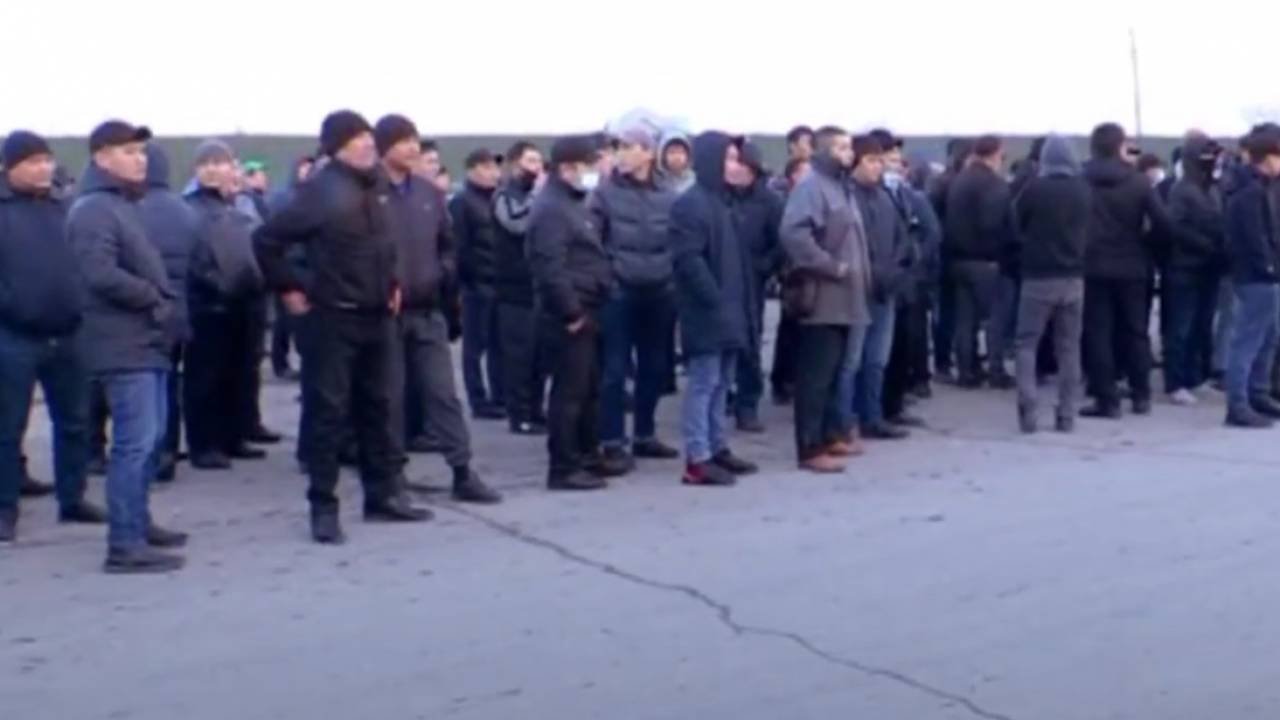
Drivers and conductors of 200 buses refused to go to work in Shymkent
Drivers and conductors of about 200 buses of 14 main routes of Shymkent refused to go to work because of a small salary, reports zakon.kz.
According to Channel One Eurasia, they are unhappy with the low wages and working conditions. While they defended their rights, passengers stood for hours at stops. The akimat had to intervene. Drivers and conductors demanding higher wages gathered at the office of the enterprise.
If the salary is raised from 250 to 300 thousand, we will be happy to work. Then, if anyone violates, let him pay the fine. We agree. driver Gabit Akshalov
The conductor Balzhan Kutibaeva also complained about the working conditions.
You come here in the evening, and they tell you: the plan is 25,000 tenge. It’s a lot! she says.
Since February 1, the city authorities have made changes to the Passenger Service Rules. We installed terminals in the salons and connected the Tulem payment system. Reduced conductors. Passengers are now checked by controllers. Now there is no cash, which, after depositing the proceeds out of habit, could be left in your pocket.
Previously, the plan was 15 thousand tenge. They raised it last night. But people no longer pay in cash, where do we get that kind of money? Who and how monitors cashless payments? driver Yerzhan Turymbetov
According to the audience, discord in the team occurred with the arrival of a new leadership. It imposes additional costs on the drivers themselves. And those who are outraged are fired from their jobs.
We were fired, and they also threatened us, they wanted to involve us in some, allegedly, cases. But I didn’t do anything illegal. former bus driver Maksat Imankulov
It is noted that because of the protest action, many residents of the city could not get to work on time.
Now, because of your relationship with the leadership, the whole city has risen. Residents are not to blame. I beg you, let’s solve everything without causing inconvenience to the townspeople. akim of Shymkent Murat Aytenov
Akim of the city promised: if employers do not agree with the protesters today after the end of the shift, he will raise the issue of transferring the bus fleet to another company. This decision suited the drivers, after which they parted ways.
The transition to a cashless payment system is inevitable. Previously, it passed almost painlessly in Almaty and Nur-Sultan. In the capital, an electronic fare collection system was introduced in 2016. At first there were difficulties, but now the people are quite happy. You can pay not only with a transport card, you can limit yourself to a short SMS, scanning a QR code, or using biometric data. And no hidden income.